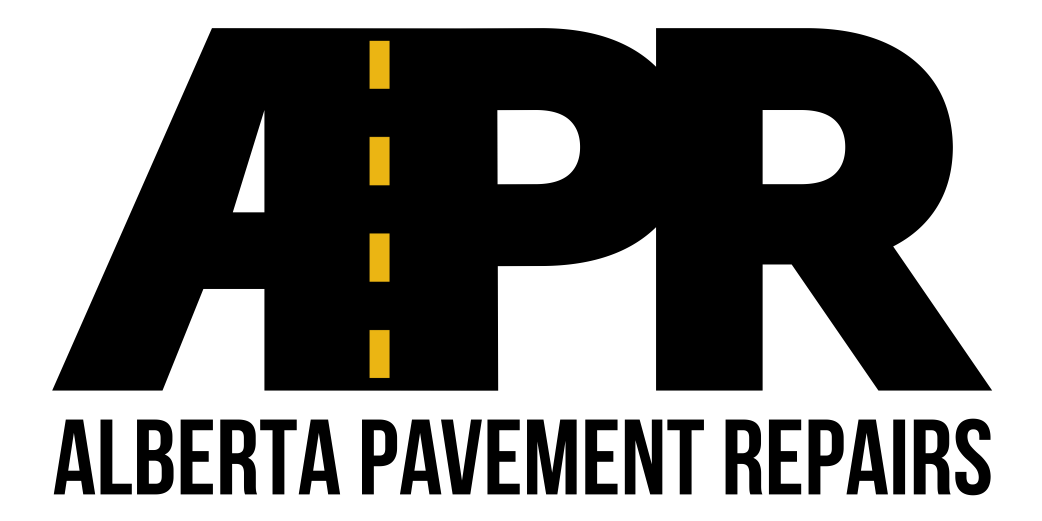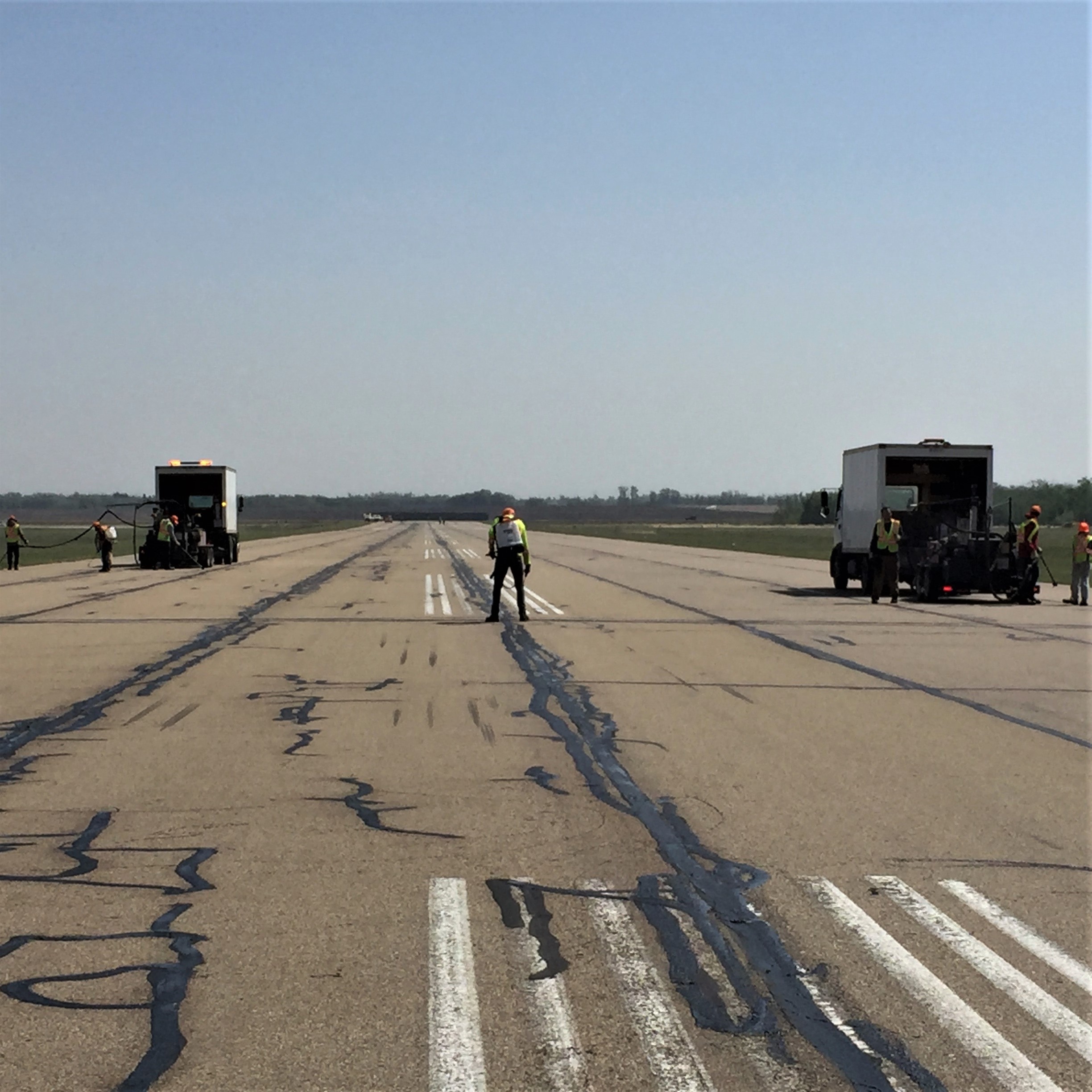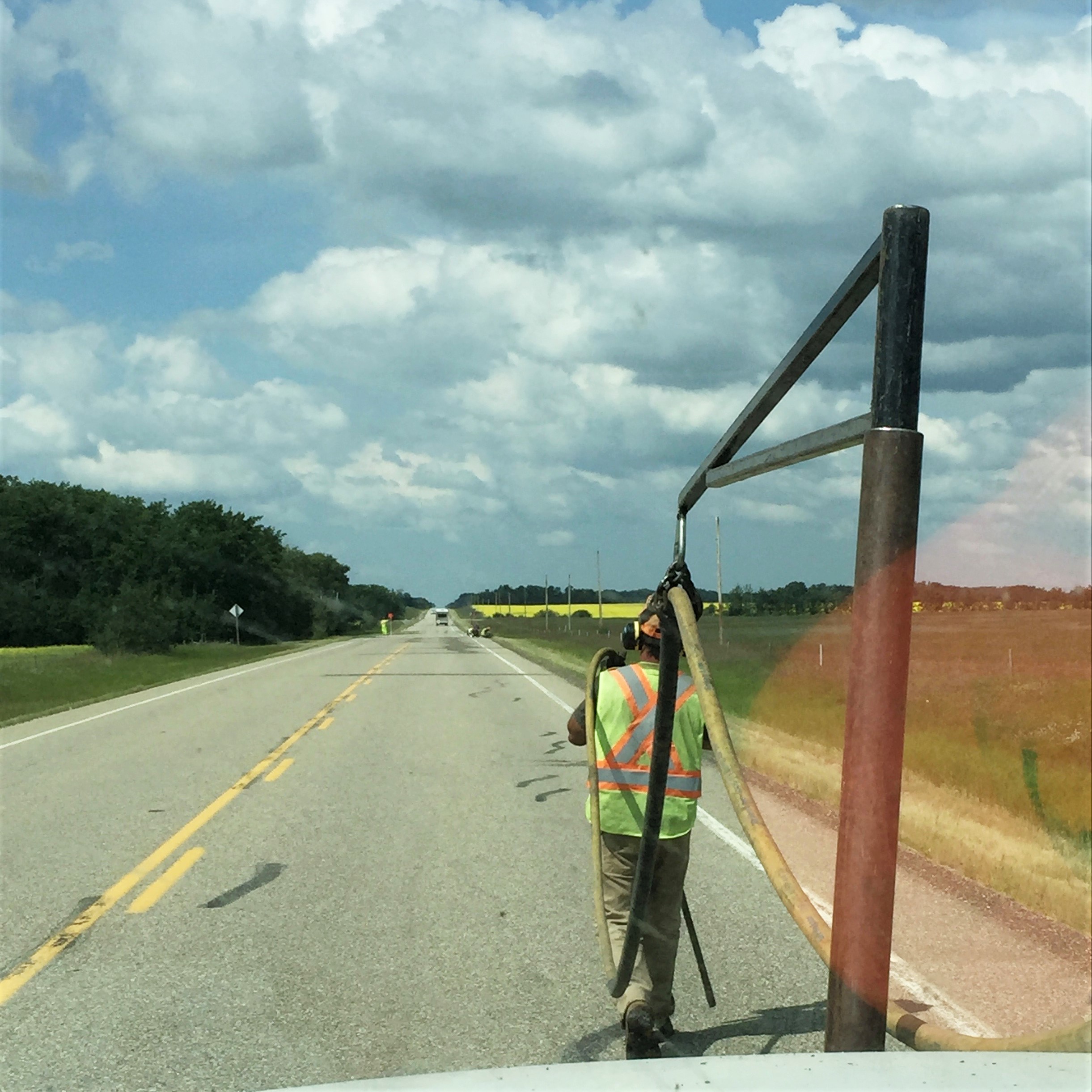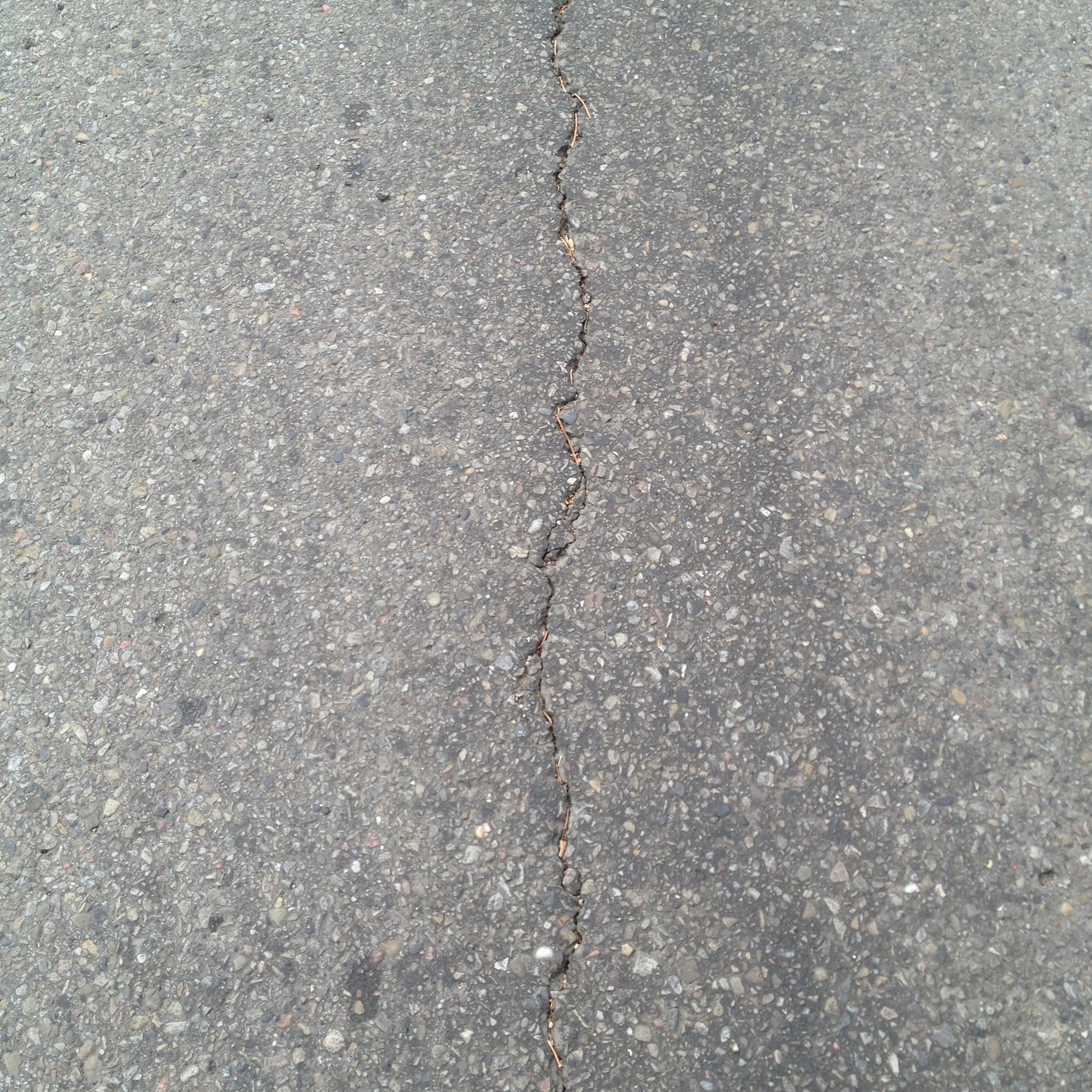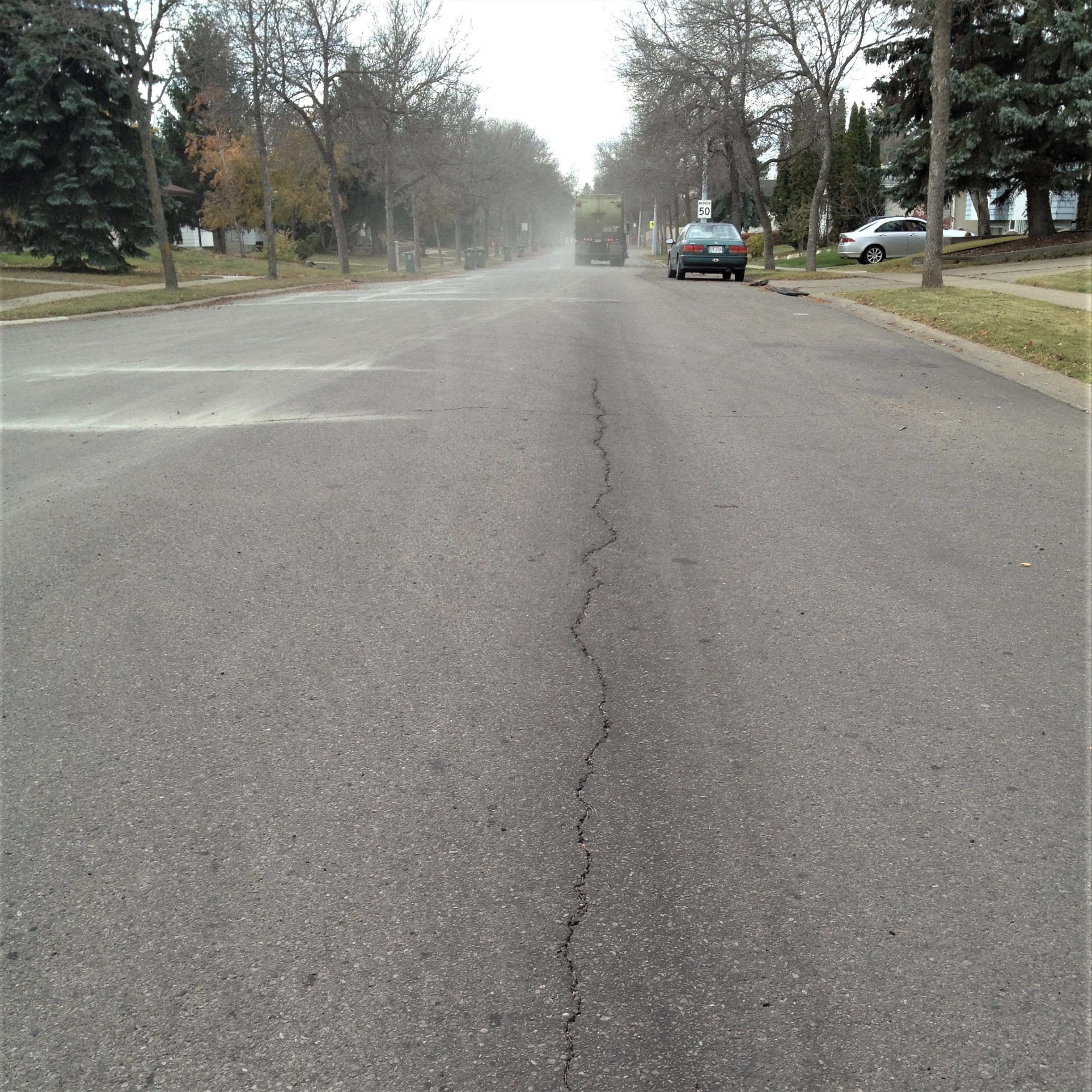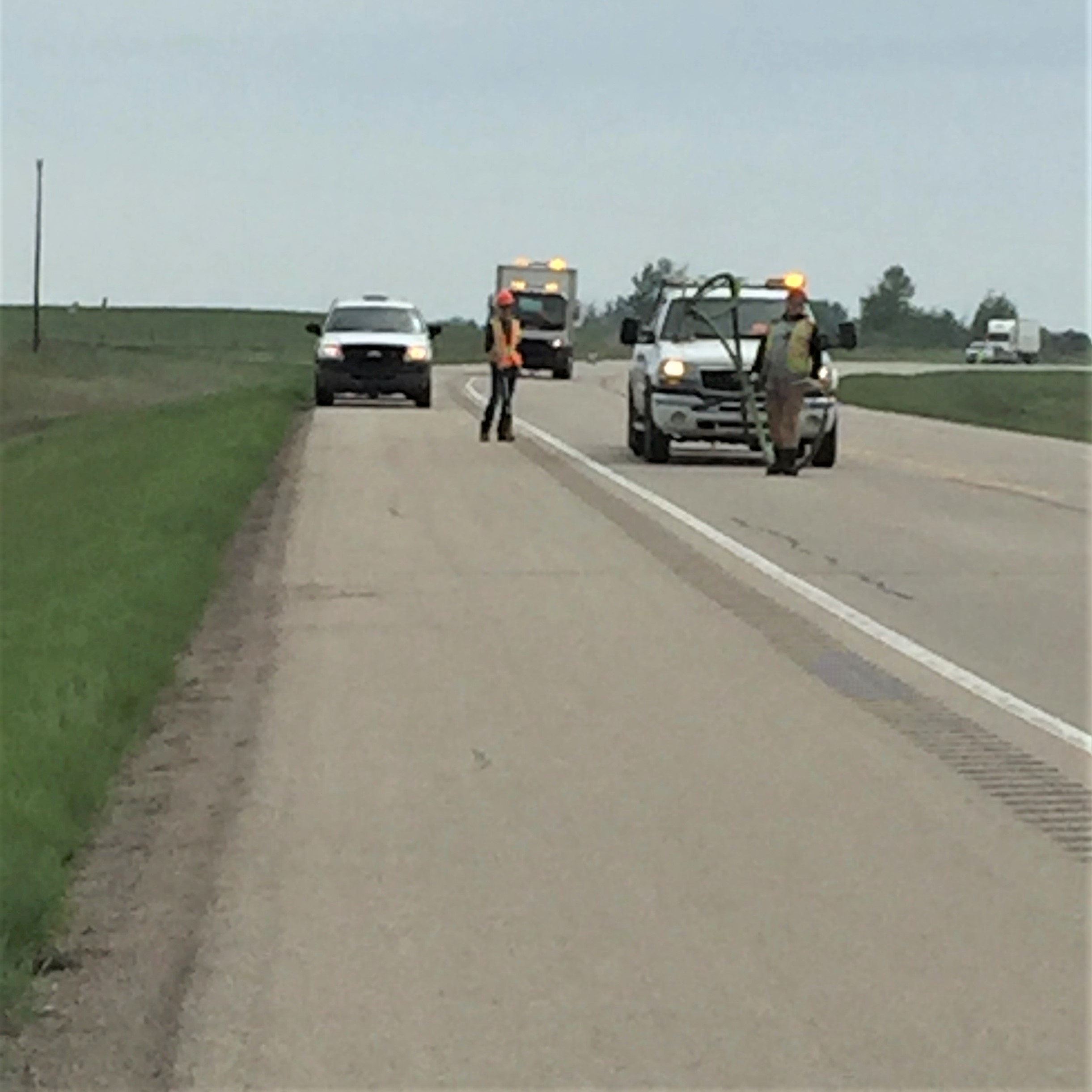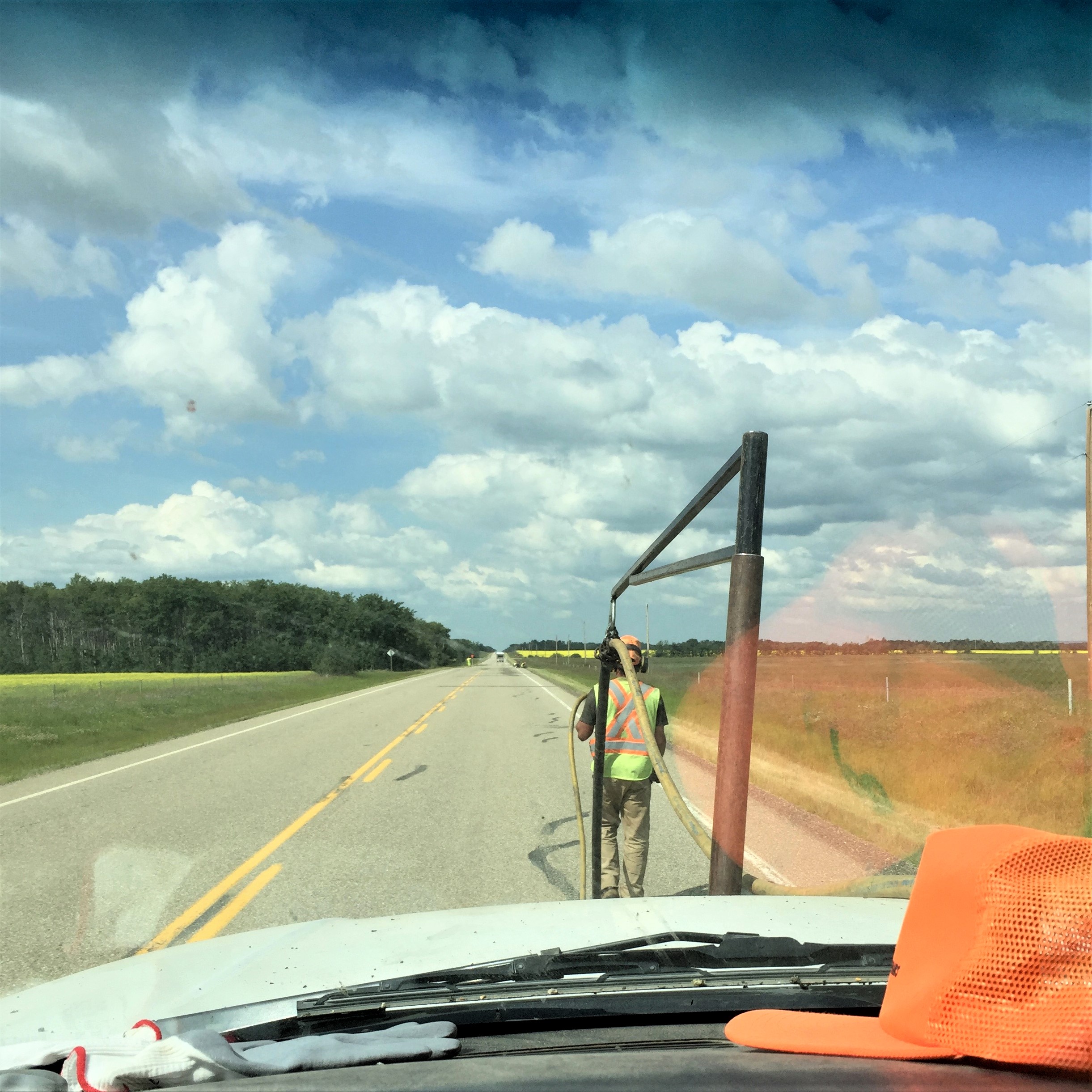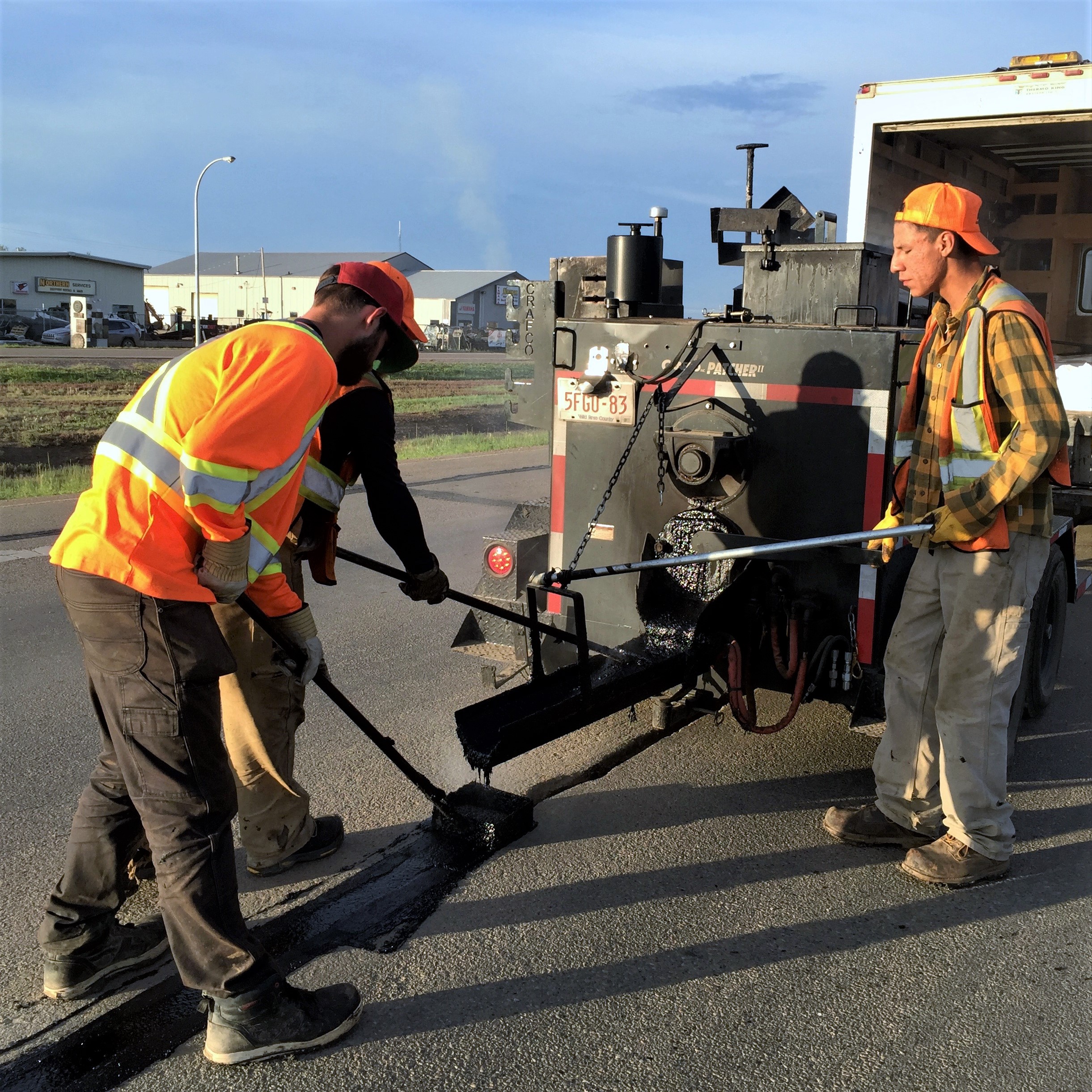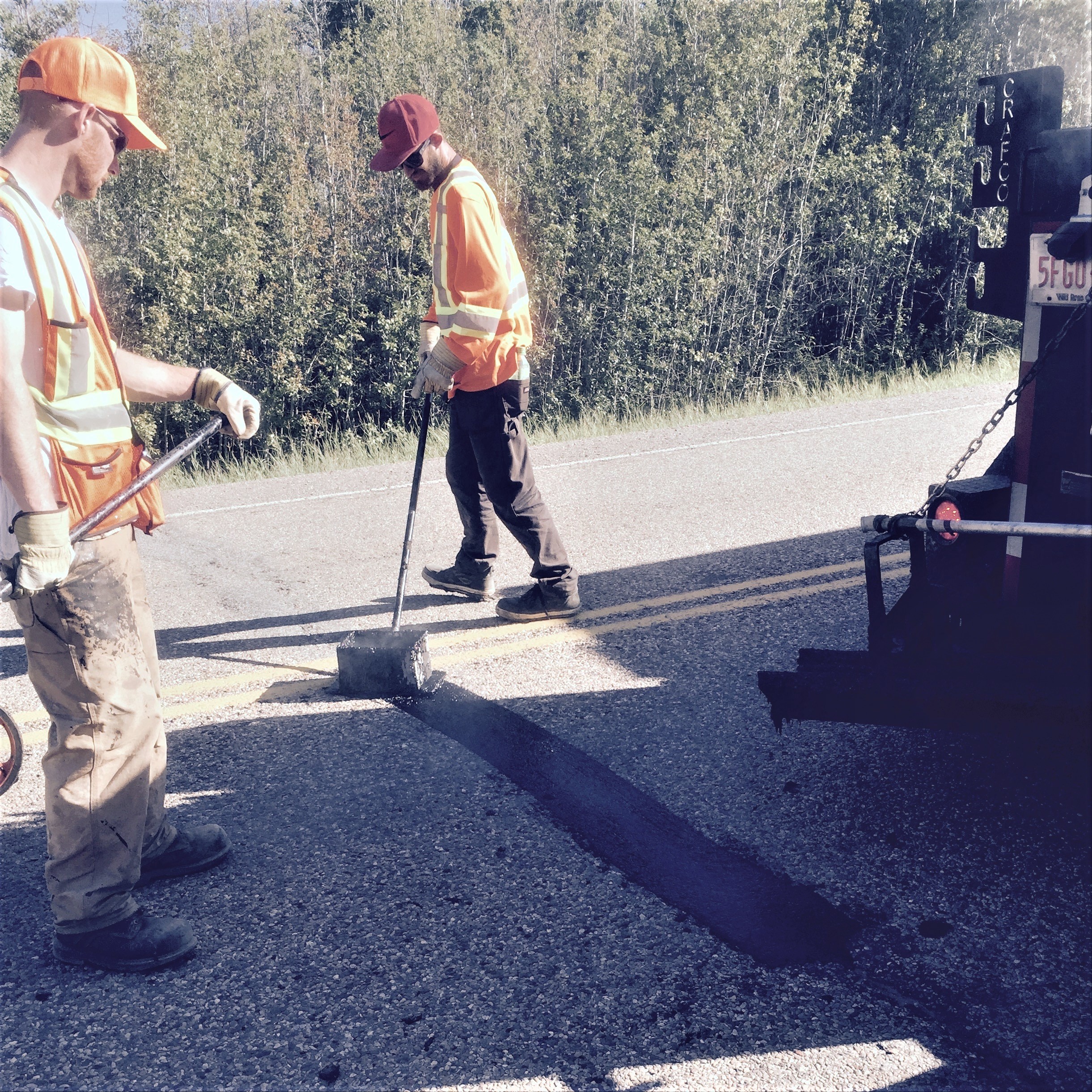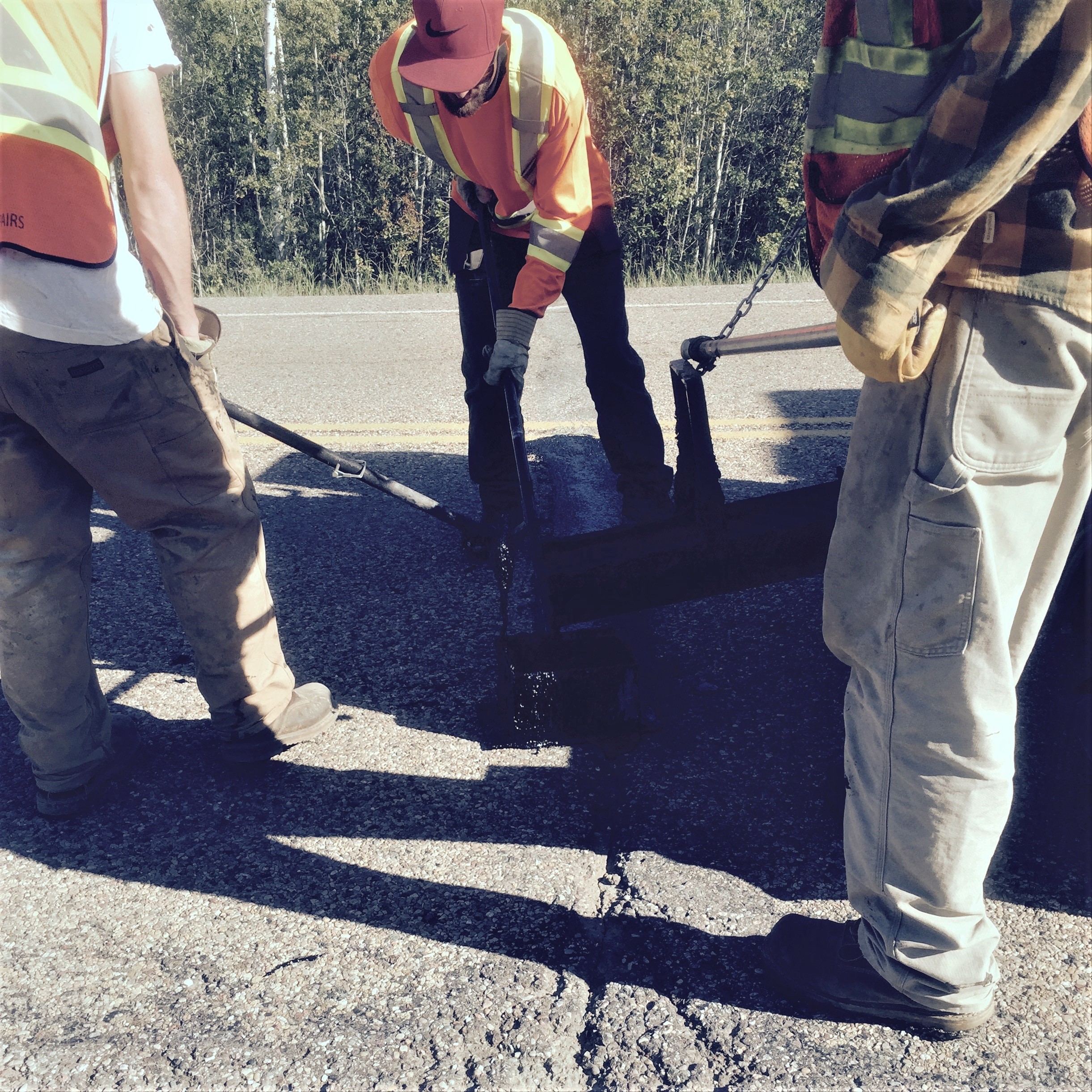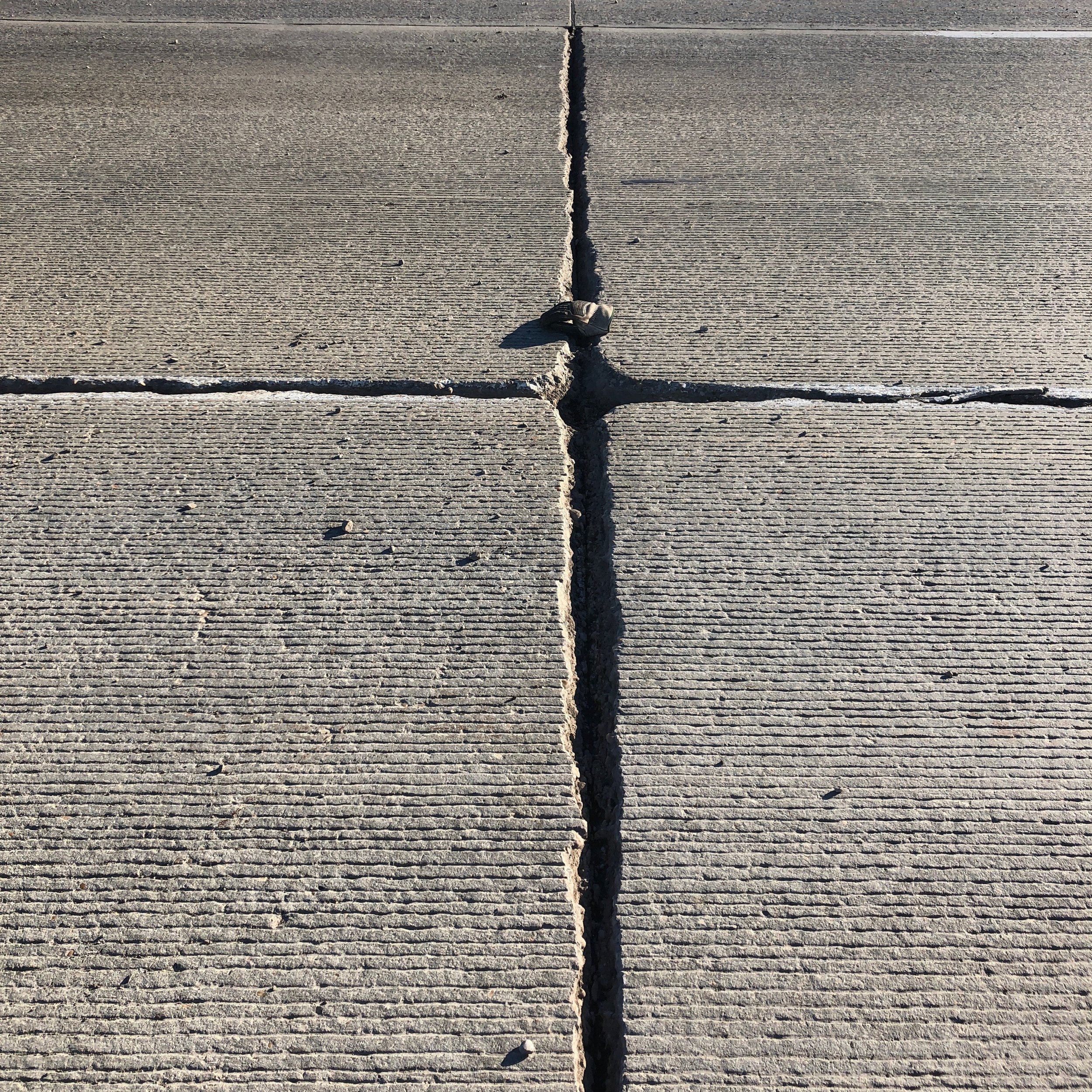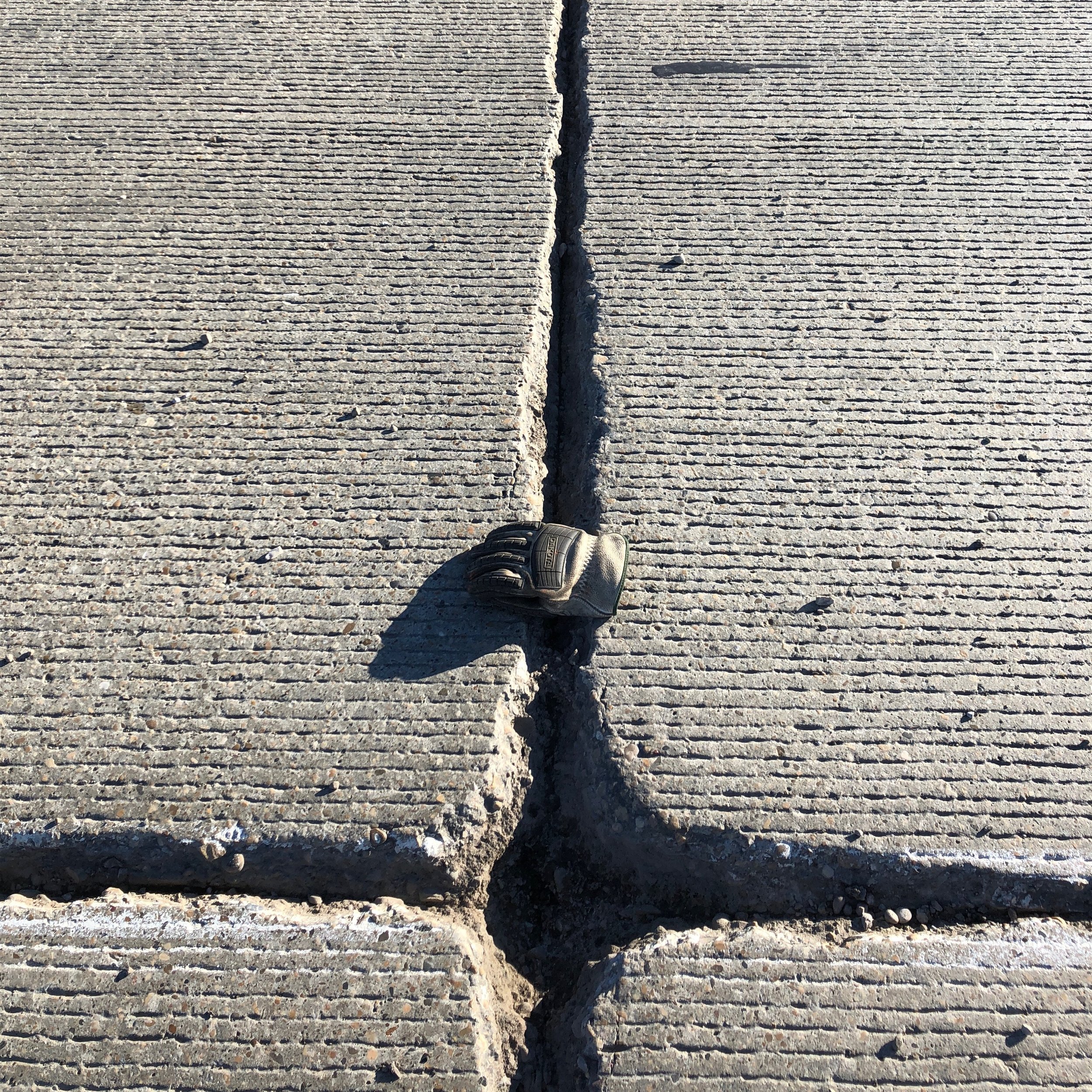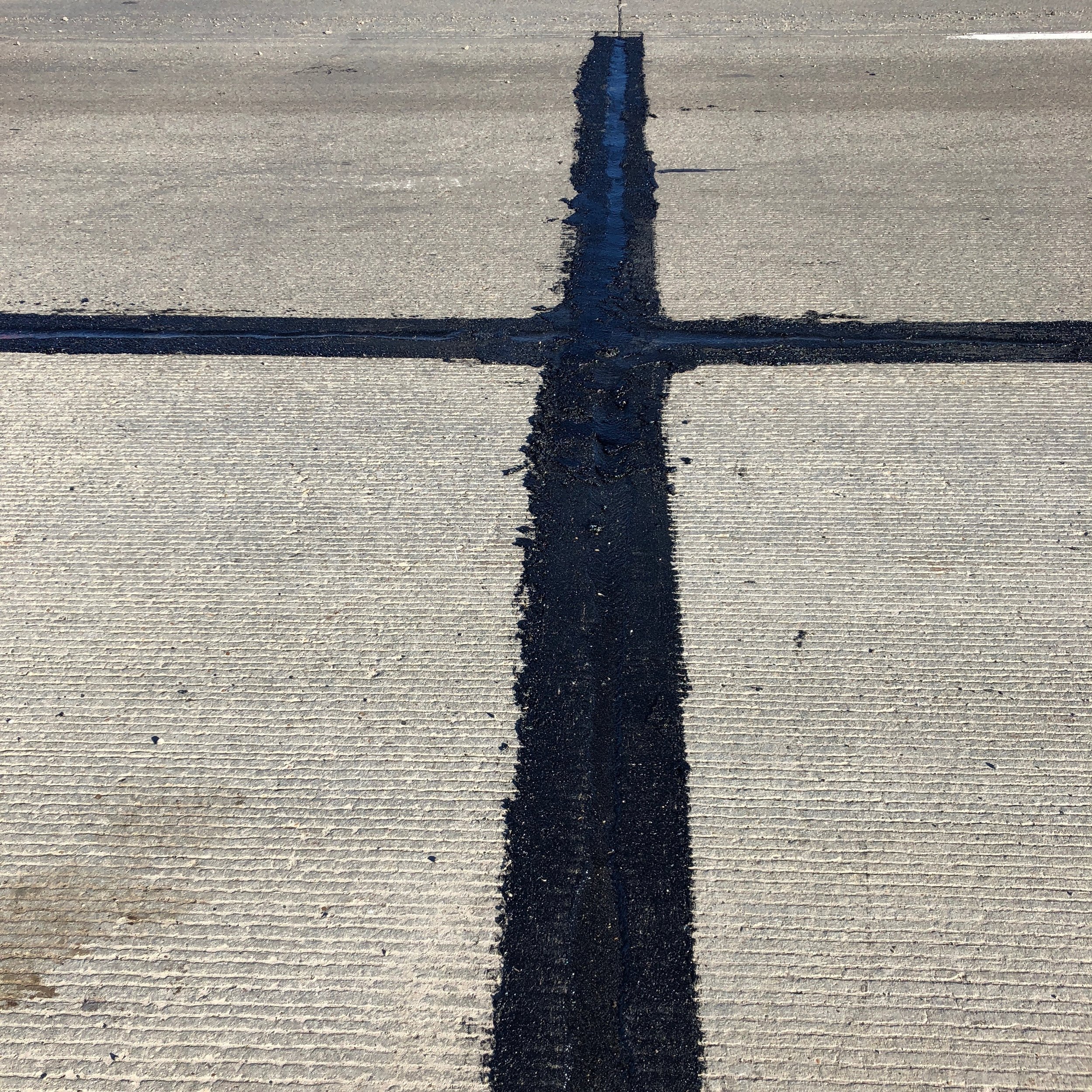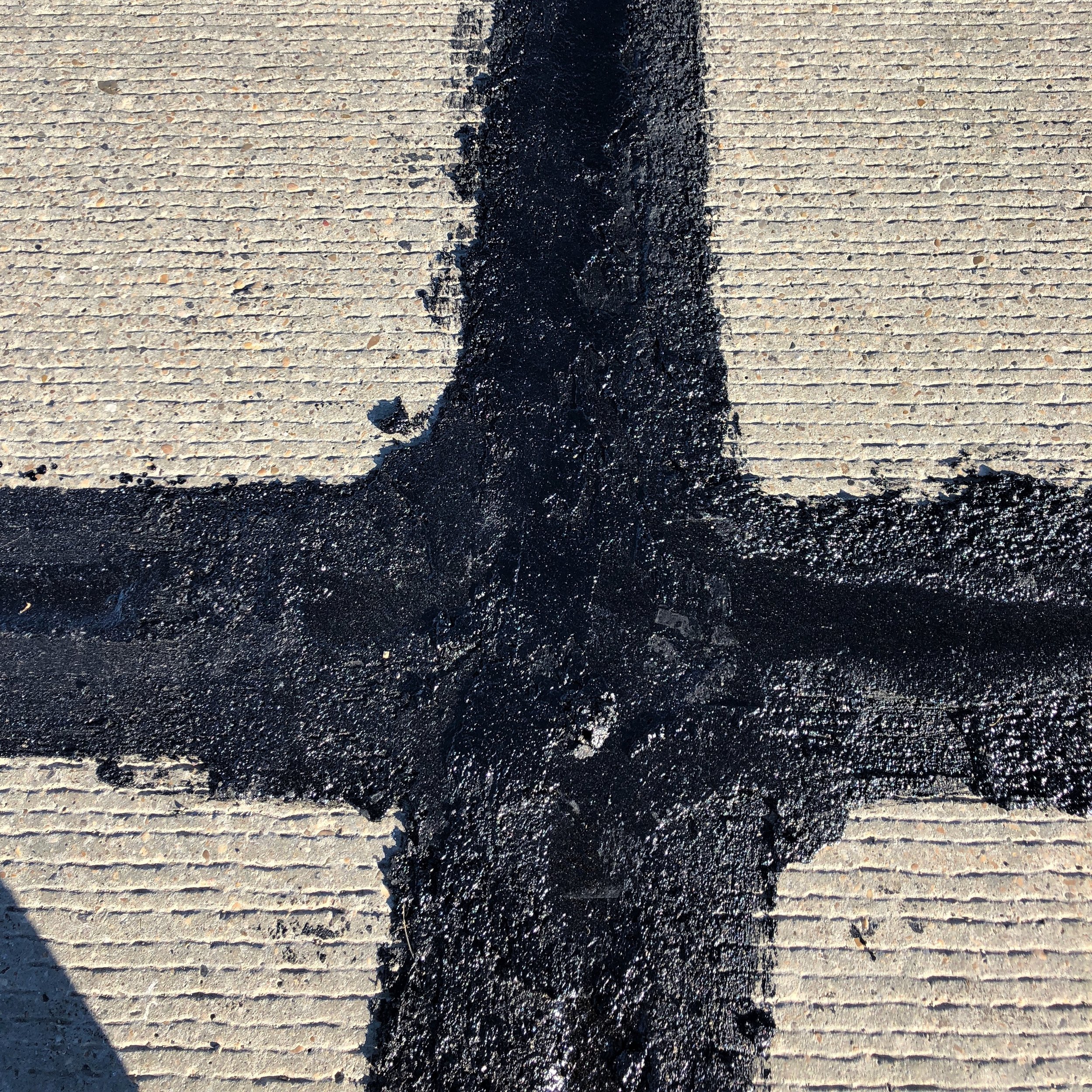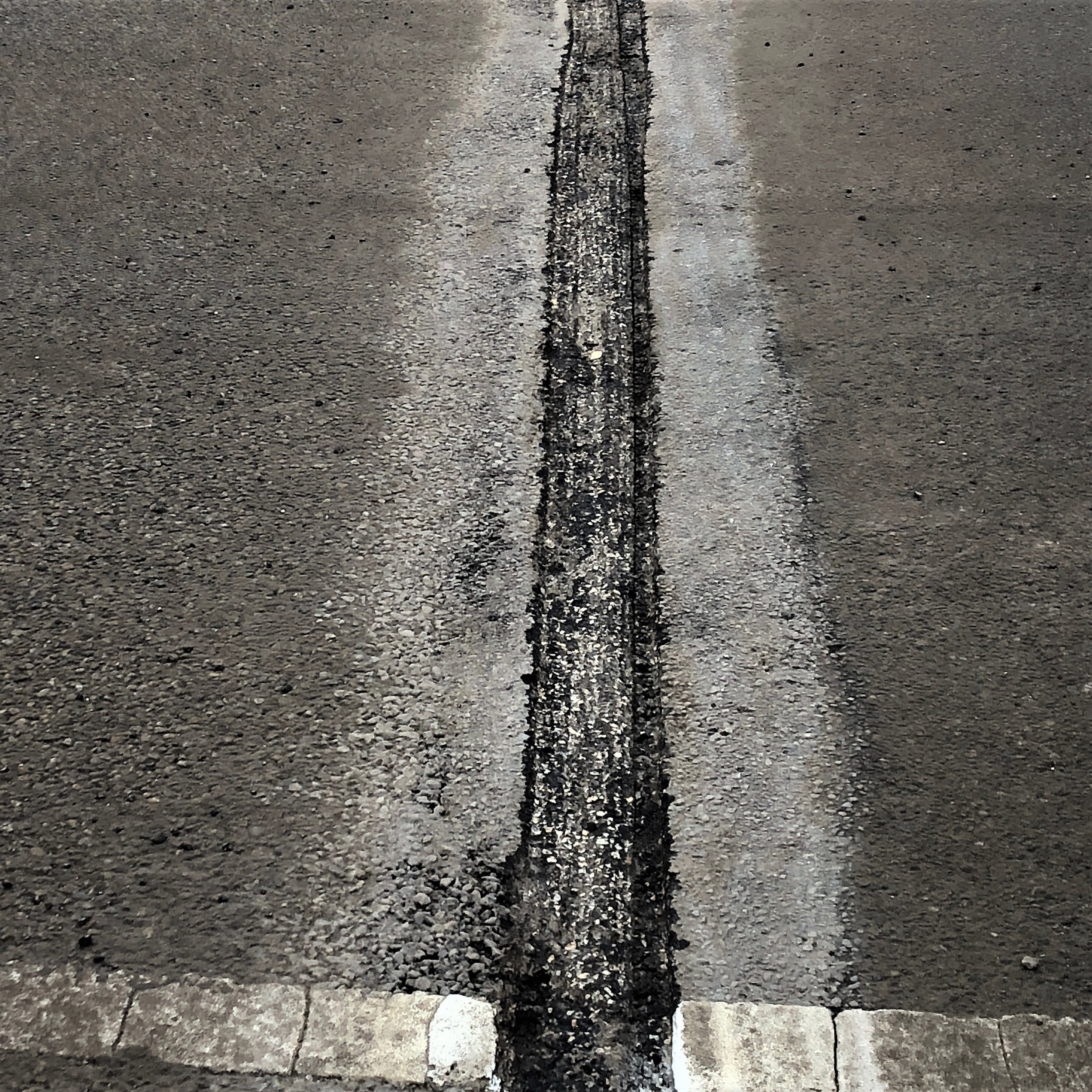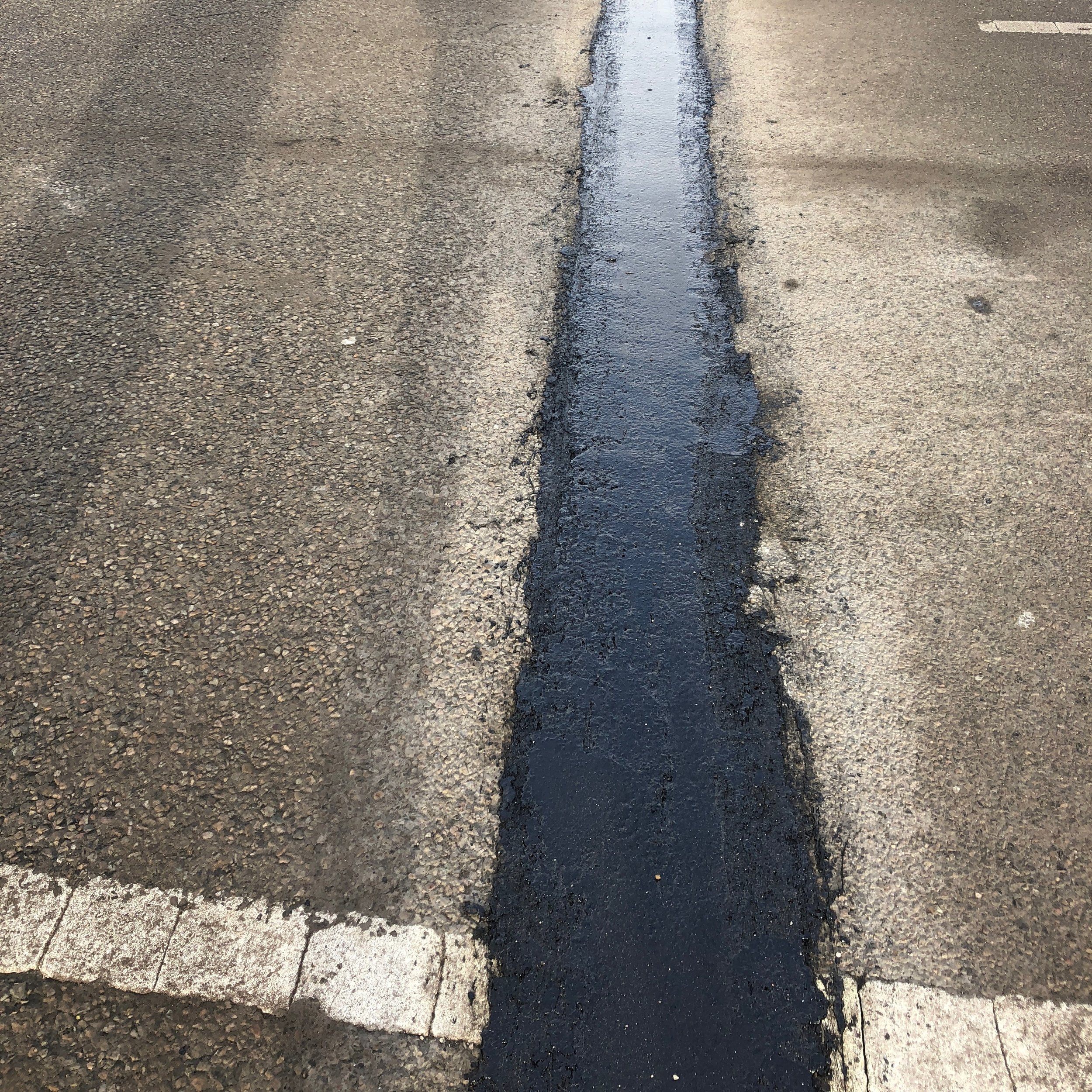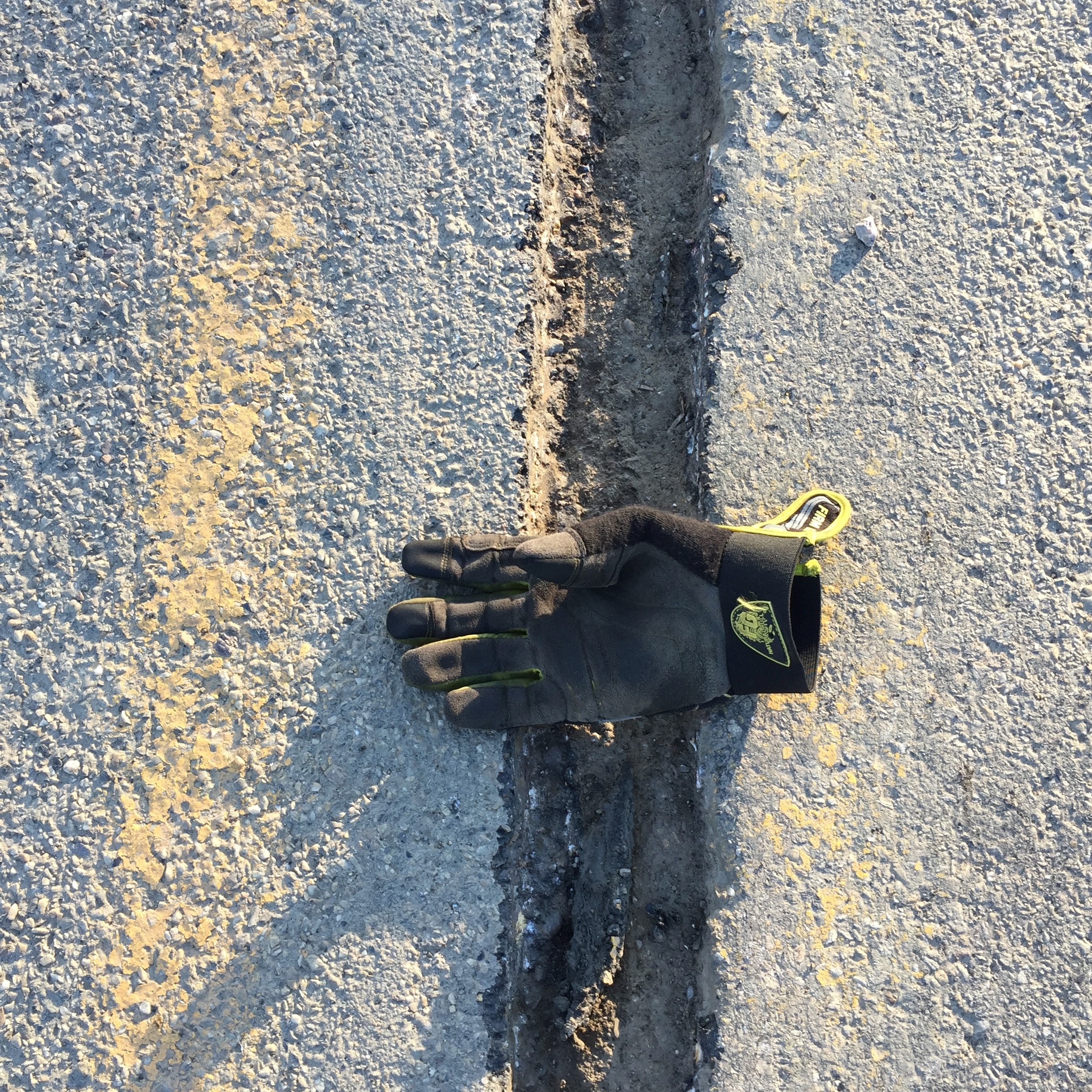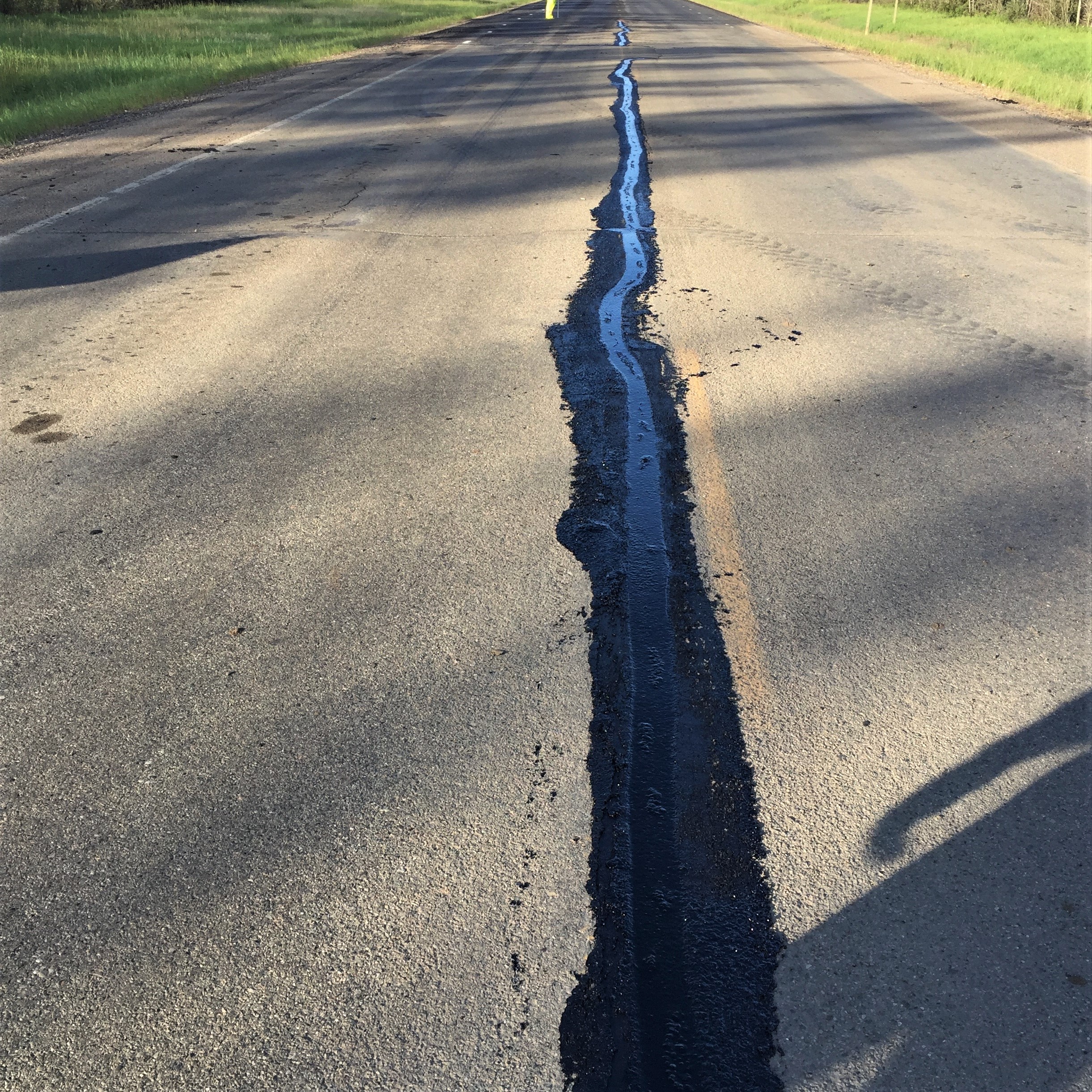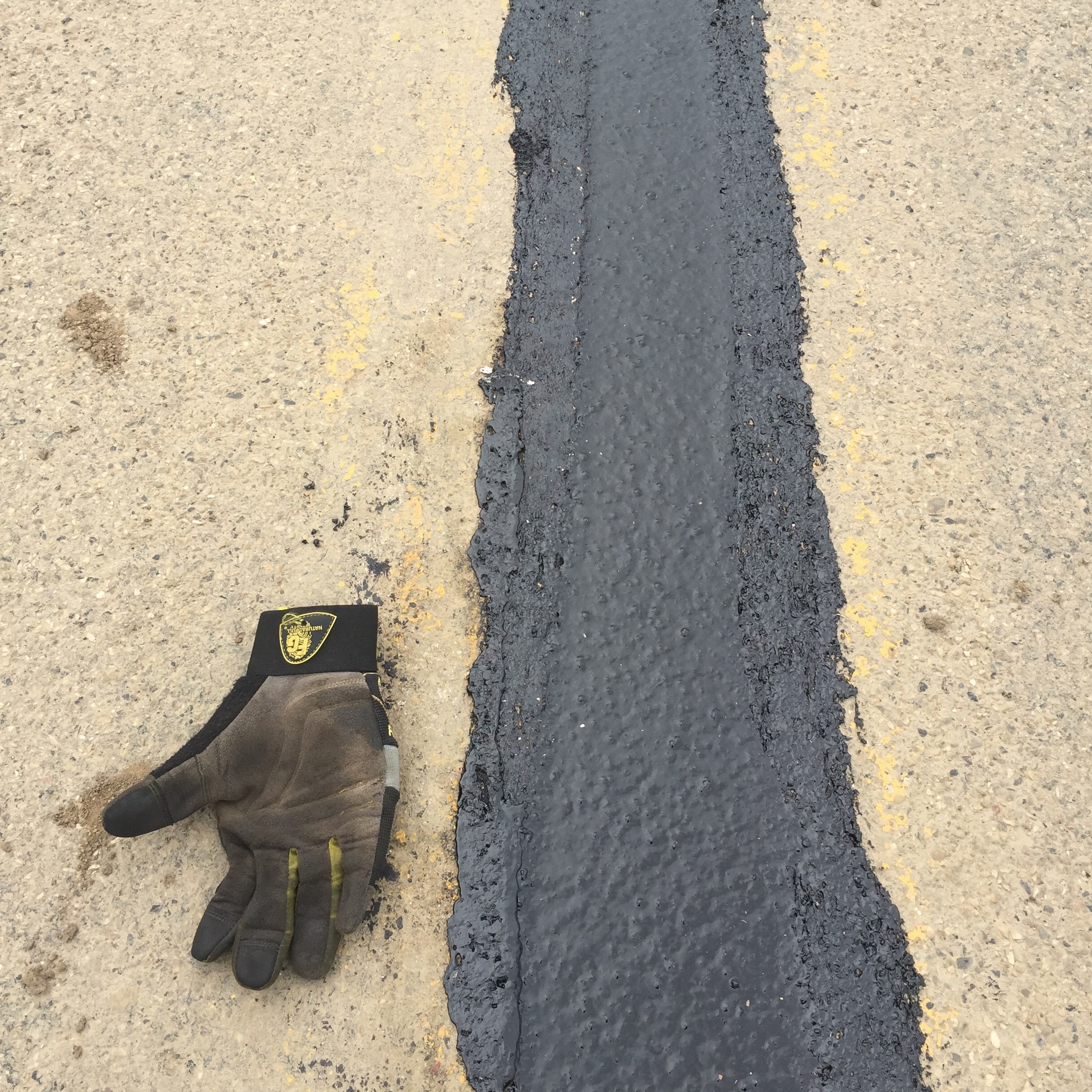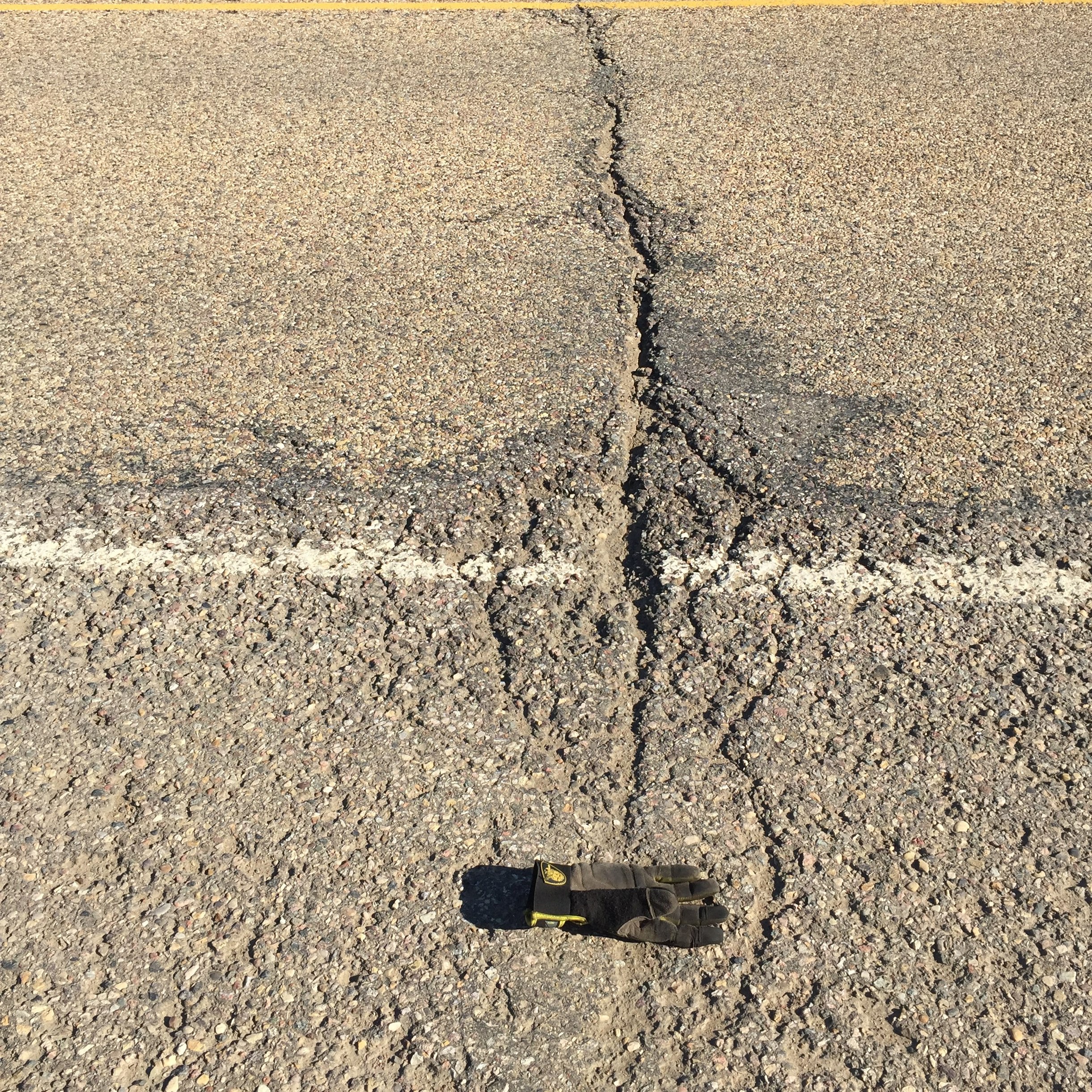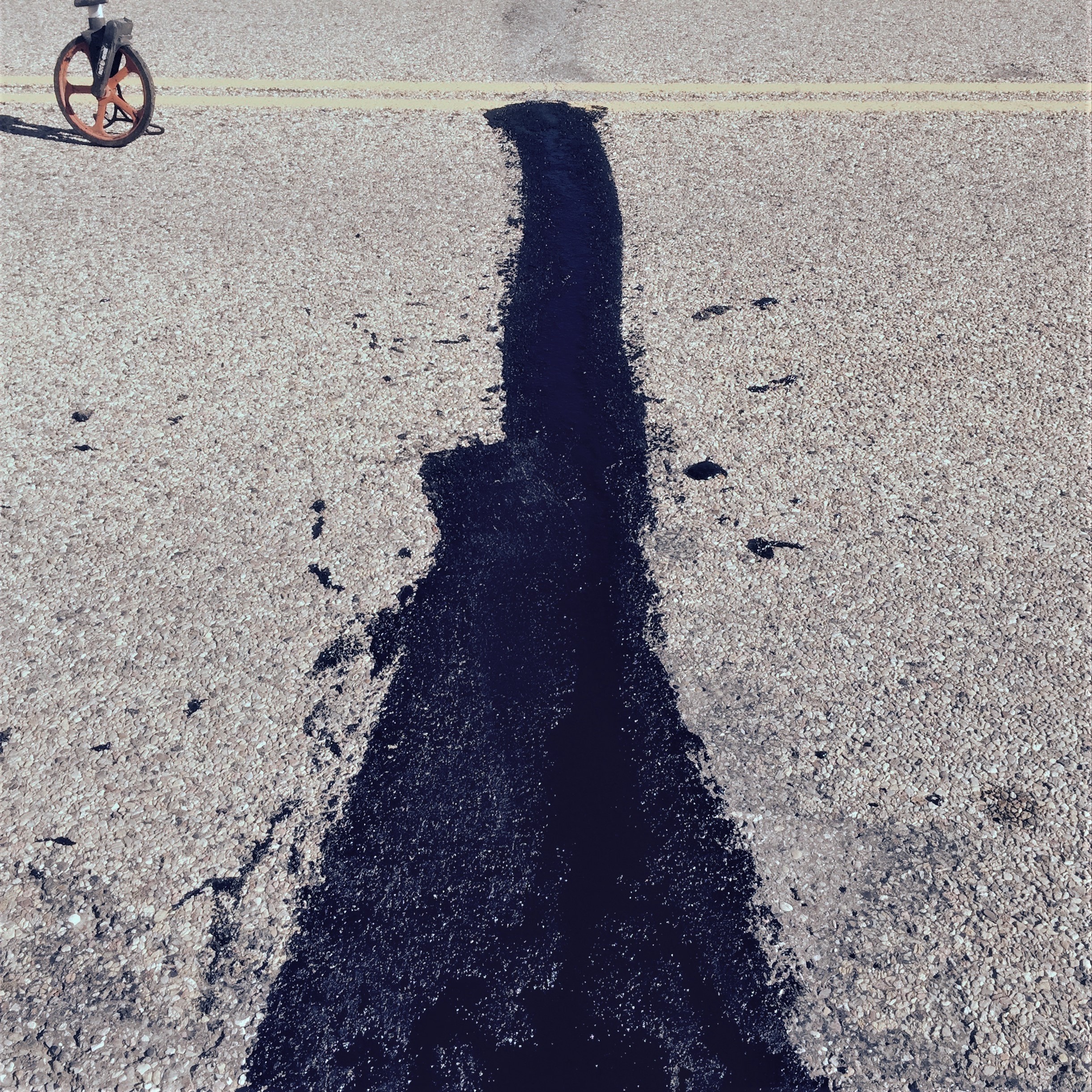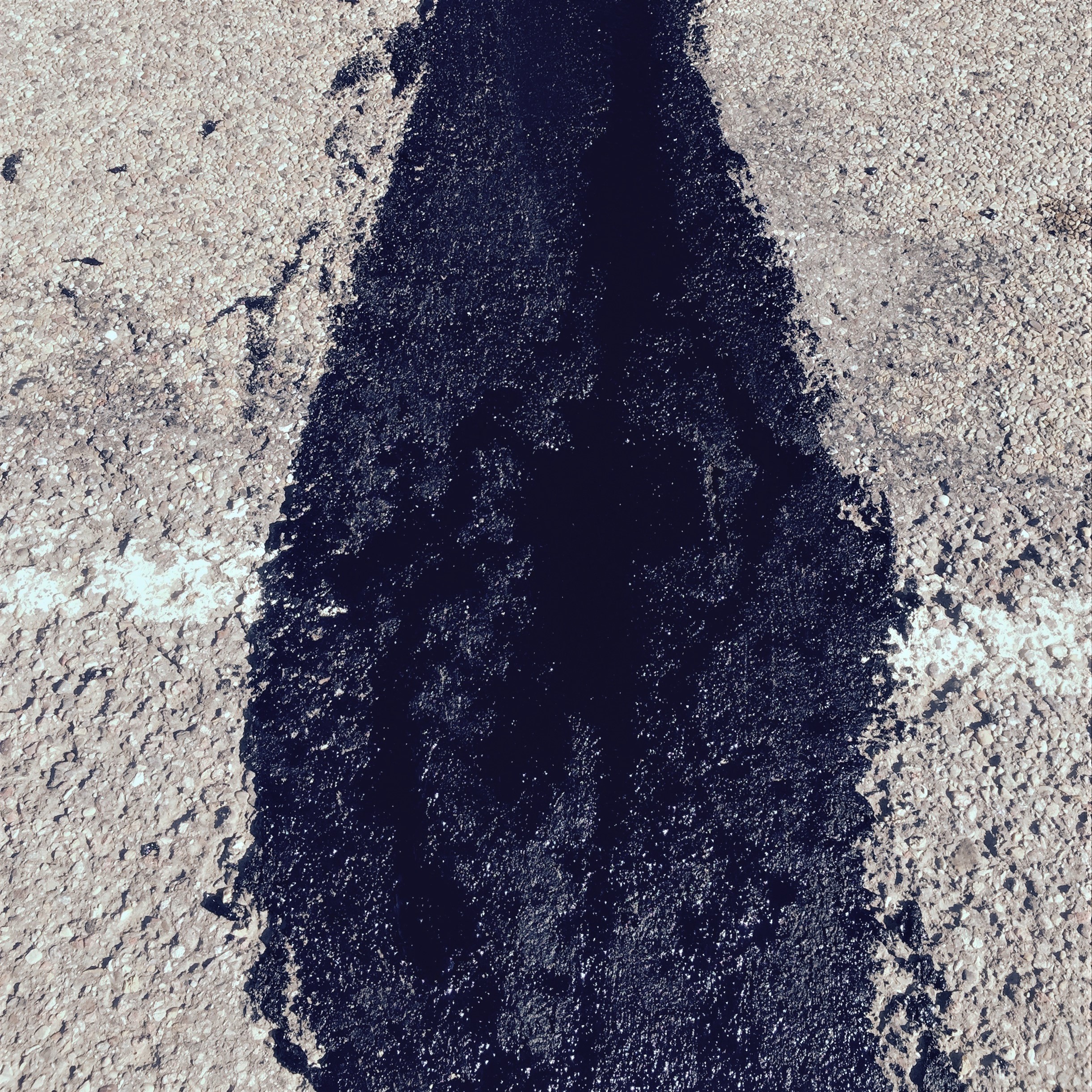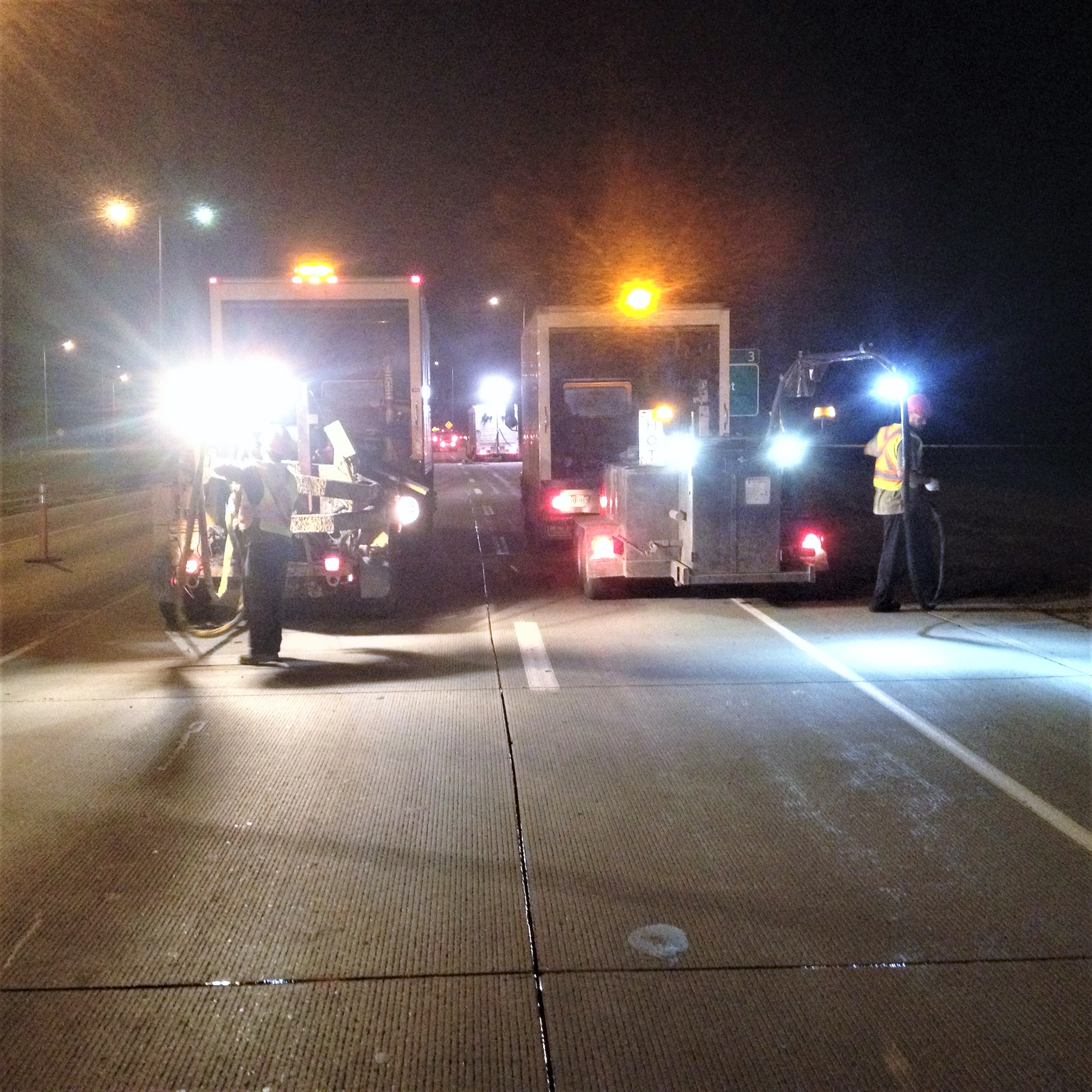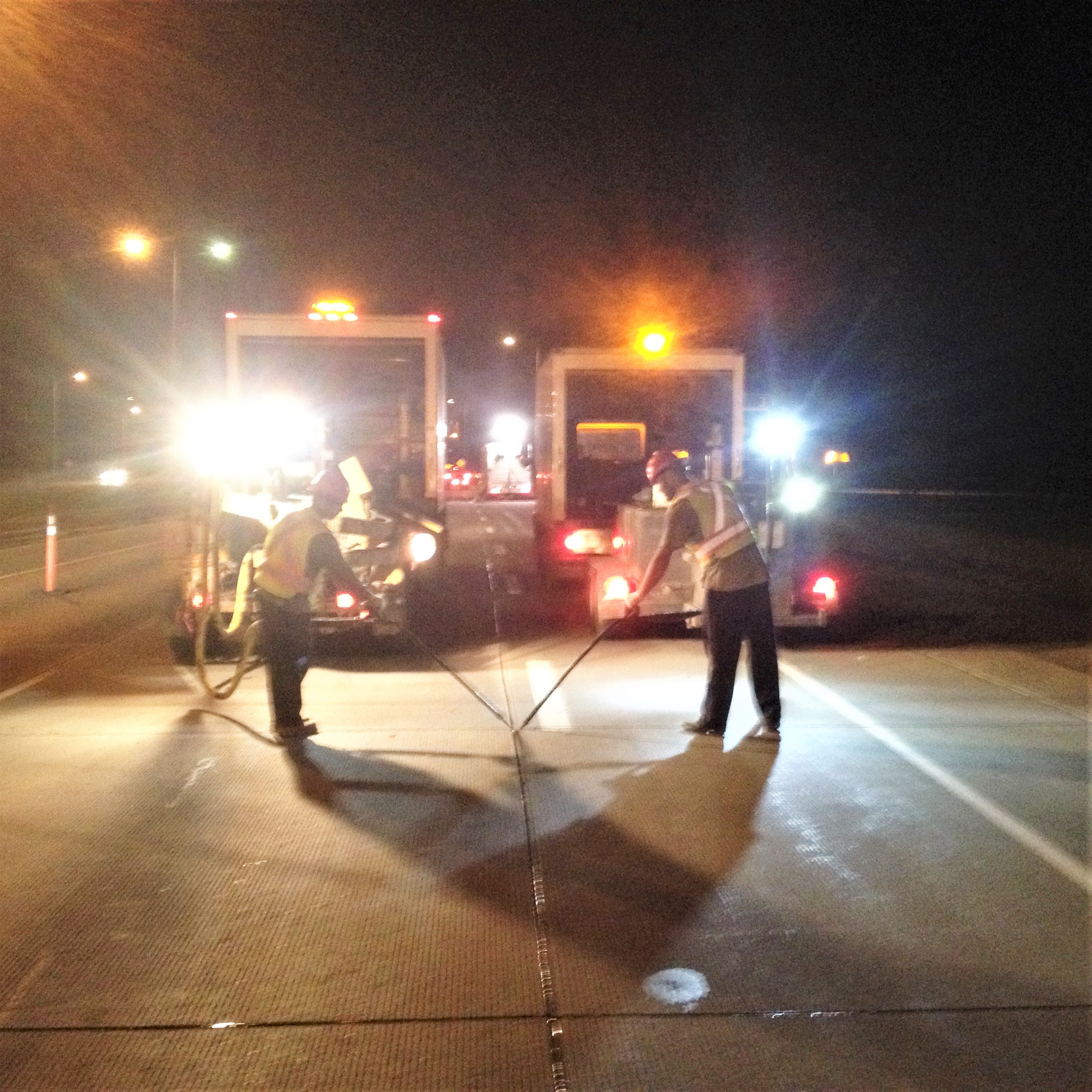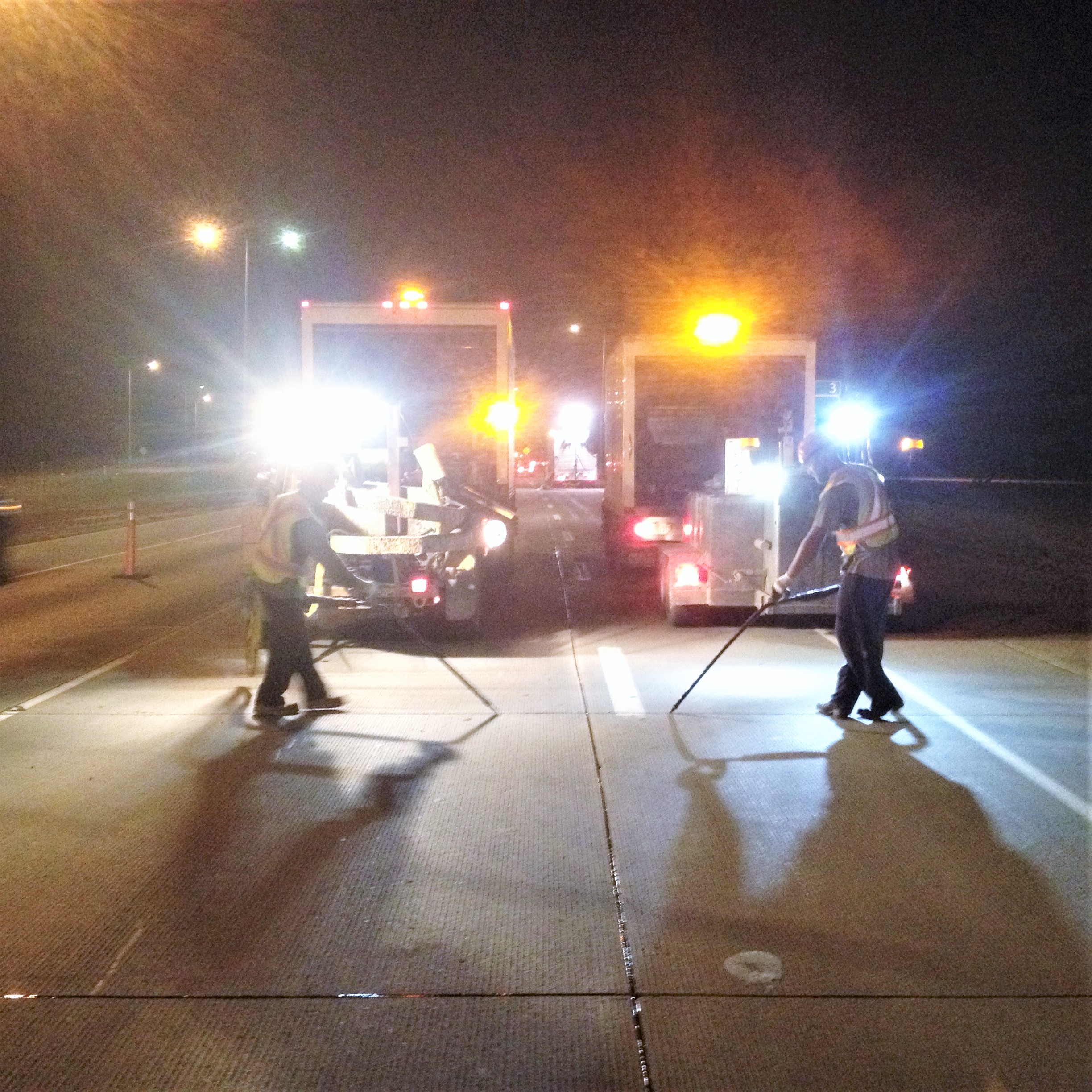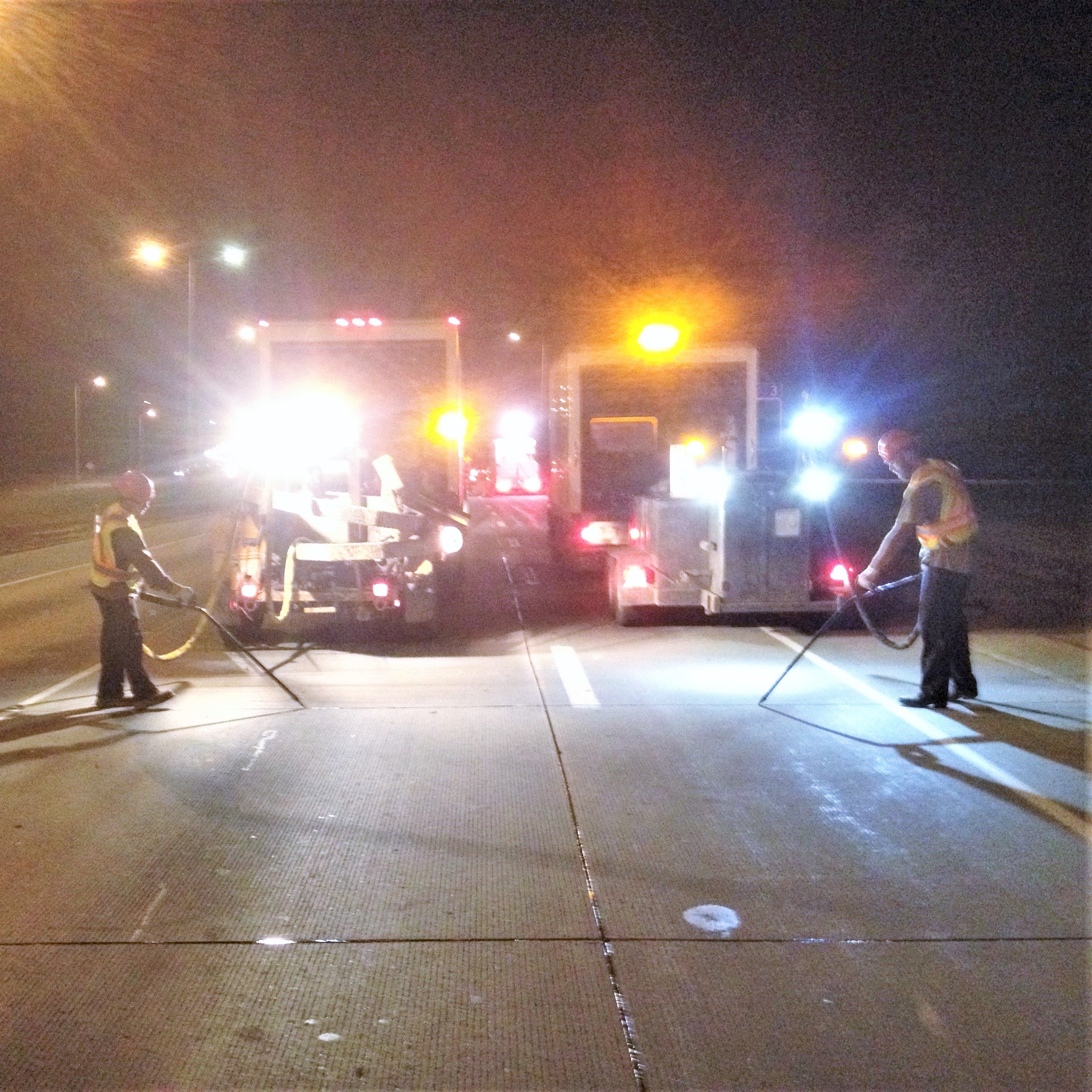
Why Crack repair & sealing is important
Cracks allow water and debris to infiltrate the substructure of pavement causing permanent damage. During the freeze and thaw cycle, water can freeze inside an unsealed crack and put pressure on the asphalt. This results in significant damage, including potholes.
The best way to protect against damage is to seal cracks with a hot-applied rubberized asphalt crack sealant. The sealant is formulated so that it can stretch with the widening cracks during the winter months. Our Rout & Seal process provides the most effective application of this sealant.
According to the U.S. Federal Strategic Highway Research Program, every $1 spent on crack sealing saves $4 in rehabilitation costs down the road.
Blow & Seal
Blow & Seal is a budget friendly form of crack repair that can be applied to asphalt of any age. Ideally, cracks should have a wide opening to allow as much sealant as possible inside the crack.
Blow & Seal repairs will provide 2-7 years of service.
Rout & Seal
Rout & Seal is our most effective form of crack sealing. It is suitable for cracks that are well defined with little-to-no secondary cracking and works most effectively on asphalt that is 2-10 years old. The original crack should not be wider than 1 inch.
Rout & Seal repairs will provide 6-12 years of service.
Mastic Repair
Mastic One is the perfect solution for cracks that are too big to repair using traditional sealing but are also too small for repaving. This newer technology is used primarily for wide cracks, leveling transverse cracks, repairing deteriorated longitudinal seams and repairing deteriorated concrete joints. Because of the load bearing properties of the product it is also ideal for pothole repairs.
Concrete Joint sealing
Typical locations requiring concrete joint sealing are airport aprons, runways, taxiways, and transit stations as well as curb joints.
